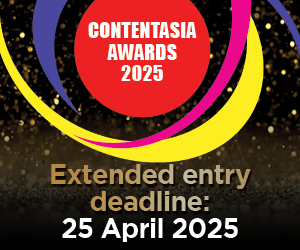OMG, talk about all hell breaking loose. Not that it wasn’t always loose, but the moaning and bitching over format copying hasn’t been this public since Star China went off and did Sing! China, leaving Talpa to its new partners on the return of the official version of The Voice of China. This sparked off a vitriolic legal tussle that ran for years and, some believe, led directly to China’s blanket ban on foreign format acquisitions.
The flashpoint this time revolves around iQiyi’s hit Chinese show, Idol 101, which Korea’s CJ E&M says is an almost identical copy of Produce 101. CJ E&M used a system developed by global formats rights protection agency, Frapa, to pinpoint copied elements, emerging with a score of above 80% and “officially” tagging Idol 101 as an unauthorised copy.
iQiyi, fresh from its Nasdaq listing, is having none of that, denying all allegations of copyright infringement and, far from accepting Frapa’s methodology or judgement, says that if there’s a problem, “we will solve it with legal measures”. In other words, if you think we’re afraid of you, you couldn’t be more wrong.
The guy who took the gloves off during MIP TV/MIP Formats was Hwang Jin Woo, CJ E&M’s Seoul-based general manager and head of formats and development. Hwang, along with every other Korean producer, saw the bottom fall out of his world in 2016 when China closed its borders to all things Korean. The official reason was retaliation for Korea’s adoption of the U.S. THAAD missile defence system. Privately, many suspect that Korean content was just way too popular in China and politics provided convenient cover for shutting it all down. Hwang, along with every other Korean producer, was forced to find alternatives, Which they are, like it or not, still busy doing.
Foreign producers say the ban may have emboldened some Chinese platforms, which, unable to acquire, went ahead to copy. “There’s no pain for copying,” said one international rights holder, describing the situation as “shameless” and “out of con...
OMG, talk about all hell breaking loose. Not that it wasn’t always loose, but the moaning and bitching over format copying hasn’t been this public since Star China went off and did Sing! China, leaving Talpa to its new partners on the return of the official version of The Voice of China. This sparked off a vitriolic legal tussle that ran for years and, some believe, led directly to China’s blanket ban on foreign format acquisitions.
The flashpoint this time revolves around iQiyi’s hit Chinese show, Idol 101, which Korea’s CJ E&M says is an almost identical copy of Produce 101. CJ E&M used a system developed by global formats rights protection agency, Frapa, to pinpoint copied elements, emerging with a score of above 80% and “officially” tagging Idol 101 as an unauthorised copy.
iQiyi, fresh from its Nasdaq listing, is having none of that, denying all allegations of copyright infringement and, far from accepting Frapa’s methodology or judgement, says that if there’s a problem, “we will solve it with legal measures”. In other words, if you think we’re afraid of you, you couldn’t be more wrong.
The guy who took the gloves off during MIP TV/MIP Formats was Hwang Jin Woo, CJ E&M’s Seoul-based general manager and head of formats and development. Hwang, along with every other Korean producer, saw the bottom fall out of his world in 2016 when China closed its borders to all things Korean. The official reason was retaliation for Korea’s adoption of the U.S. THAAD missile defence system. Privately, many suspect that Korean content was just way too popular in China and politics provided convenient cover for shutting it all down. Hwang, along with every other Korean producer, was forced to find alternatives, Which they are, like it or not, still busy doing.
Foreign producers say the ban may have emboldened some Chinese platforms, which, unable to acquire, went ahead to copy. “There’s no pain for copying,” said one international rights holder, describing the situation as “shameless” and “out of control”. And “good luck suing”. At the same time, they are eager to point out that not all Chinese producers should be tarred with the same brush. For CJ E&M, any effort at a stoic approach was short-lived. First came The Rap of China, which the Korean company said was a copy of its programme, Show Me the Money. Then Idol 101. And BOOM! Hwang had had enough.
This might be seen as one more spat in a lifetime of battles all over the world over who thought of what first and which idea belongs to whom. But it also comes at a time when China is pushing a big-time global agenda, reaching out to the international community in a charm offensive that runs from drama to factual to formats and everything in between.
The public shaming at the MIP Formats event in Cannes came the morning after China presented its new slate of home-grown formats to the global community in a shiny showcase attended by, among others, officials from uber regulator, the State Administration of Radio and Television. Nine domestic content creators flexed their creative and cultural muscle under the banner of “Wisdom in China – The Land of New Formats”. The tagline included “time to start to create a future all together”. Bold pitches to the international community ran from The Nation’s Greatest Treasures (celebs paired with national treasures, viewers vote) to Kung Fu Kids (reality, 24 7-13 year olds are trained by masters and compete for the ultimate title).
The formats fracas also coincided with the first-ever China International Drama Exchange Forum in Cannes. The idea was to showcase modern Chinese drama to international buyers.
For those struggling with China bans and restrictions, and others who feel they have had their IP ripped off, the irony was not lost.
Originally published in the print issue published for the Asia Pacific Pay TV Operators Summit (APOS) in Bali in April 2018



















